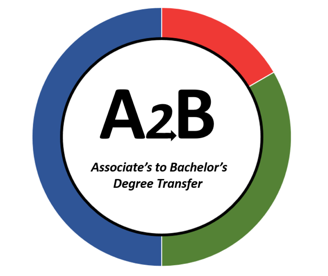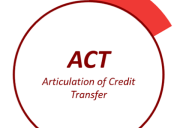You have /5 articles left.
Sign up for a free account or log in.
This post describes Brooklyn College’s new method of providing critical academic coaching support to its transfer students.
Transfer students arrive on our campus, and on any campus, with unique challenges and a particularly urgent need to orient themselves rapidly to secure their degrees and prepare for successful careers. One of the most serious challenges confronting incoming transfer students is what we can call Transfer Turmoil, the constellation of negative effects on students as a result of transfer, and particularly related to academic advisement. Advisement structures vary greatly across the City University of New York, the nation’s largest urban public university that spans 25 campuses across the city’s five boroughs, of which Brooklyn College is one.

City University of New York
Compared to the CUNY bachelor’s colleges, the CUNY community college academic advisement centers have smaller student-to-adviser ratios and are therefore able to practice intrusive advisement, a national best practice as outlined by the National Academic Advising Association. At Brooklyn College (one of CUNY’s bachelor’s colleges), the Center for Academic Advisement and Student Success (CAASS) advises all entering transfer students; the staff of nine professional advisers sees all incoming first-year, transfer and continuing students. The high student-to-adviser ratio creates a challenge for follow-up and relationship building with students. As a result, there has been no formalized infrastructure to support transfer students during all points of their tenure at Brooklyn College. This created an opportunity for CAASS to create a new layer of service that would build upon the existing structure and be designed to decrease Transfer Turmoil and increase engagement and completion through proactive support.
In June 2020, through generous funding from the Carroll and Milton Petrie Foundation, Tracy Newton, the executive director of advisement and student success; Michael LoPorto, the associate director of student success; and Estefanía Ponti, the associate director of student success and Navigate manager, created and implemented the Transfer Student Success Team (TSST). The purpose of the TSST is to expand services and support from the moment that a student commits to transfer to Brooklyn College through commencement. Brooklyn College is committed to providing a transformative, distinctive and affordable education to students from all backgrounds, and this responsibility was foremost in our minds as we structured the offerings of the Transfer Student Success Team. This included hiring part-time staff to serve as transfer advisement coaches and transfer completion coaches, and establishing a peer transfer coaching program.
The title of “coach” was very deliberately chosen to engender a shift in the culture. Form often dictates function, and building yet another team of advisers, even if they were cohort based, would not create space for a shift in how information was delivered and support was offered. The very word “adviser” creates a dynamic wherein one person shares their knowledge, like an oracle. The term “coach” implies the offering of skills, training and opportunities to hone abilities. The focus of our coaching teams is on building skills for our students and not simply providing answers. The sessions they provide are grounded in a philosophy of training the students to not need our services by pointing them to the sources and insisting they invest themselves in the whys and wherefores.
From the beginning, the strategy with the coaches was to identify specific groups within Brooklyn College’s transfer population and assign coaches to a manageable cohort of students. The students who were assigned coaches would have access to this service, but those outside the cohort would not. This small change from on-demand service to concierge service allows for more tailored efforts, efforts that do not involve students having to compete for the opportunity for such individualized support. The college, seeing the positive impact such academic coaching was having on some pilot groups of transfer students, invested in the idea, and a new team was created to serve non-CUNY transfer students and undeclared students, seniors and students who are part of the “murky middle” population (meaning they have a GPA of 2.0 to 2.3, not low enough for any official intervention, but still clearly in need).
Because the coaching teams are working with a manageable group of students and can focus exclusively on those students’ needs, the coaching teams have the ability to coordinate their efforts to meet specific needs and to incubate new ideas. As a result, specific pillars were developed that now define the work of the coaches. These pillars include Transcript Diagnostics and Schedule Forecasts, both designed to work within the decentralized advisement structure at Brooklyn College to ensure that students are well aware of their remaining requirements and how courses fit into a given semester. The coaches provide Transcript Diagnostics for all students in their cohorts with 90 credits or more. This Transcript Diagnostic is a summary of all remaining requirements, along with advice regarding curricular opportunities or trouble spots. Coaches look for possible minors or second majors in which students can enroll and pay close attention to insufficient grades to see if students can retake classes to improve their GPAs. Transcript Diagnostics allow students to see their remaining requirements in one place and contextualize what still must be accomplished to graduate.
Academic coaches also offer Schedule Forecasts to all students in their cohorts. Schedule Forecasts provide students with an overview of courses they are eligible to take for the upcoming two semesters, which students can then discuss with their program advisers. Schedule Forecasts are intended to engender conversation and to better prepare students for their meetings with their advisers. Schedule Forecasts are not an academic plan per se; they simply spotlight courses that can be taken based on previous coursework. They are based on DegreeWorks (our student academic record audit system) and our faculty-approved DegreeMaps, which detail what courses should be taken in a specific semester. This pre-advisement check-in allows students to gain a better understanding of their requirements before it is too late to make optimal course choices. Our peer Transfer coaches provide a follow-up to all students who have met with a coach and who have been given a Schedule Forecast to ensure these students meet with their program adviser in a timely manner.
The program’s goal is simple: mitigate Transfer Turmoil and, in doing so, improve credit accumulation, retention and completion. The data show that we have successfully reached the graduation goal even in the first cycle of the grant: for the fall 2020 cohort, TSST students filed for graduation and had degrees conferred at higher rates than non-TSST students (52.5 percent versus 49.4 percent and 38.6 percent versus 31.3 percent, respectively). For the spring 2021 cohort, TSST students filed for graduation and had degrees conferred at higher rates than non-TSST students (46.9 percent versus 37.98 percent and 27.2 percent versus 18.3 percent, respectively).
The very nature in which students are engaging with college has fundamentally changed since the onset of the COVID-19 pandemic, and so the Transfer Student Success Team has had to constantly adjust and reframe its efforts to meet the ever-changing expectations of our students. Our biggest challenge has been these constant shifts in student needs, but our greatest strength has been the ability to meet these needs and to continue to evolve. For CUNY students, who often work, care for family members and in general lead incredibly complicated lives, a support service that is delivered specifically to them is welcomed assistance.


